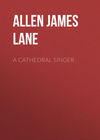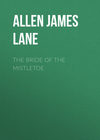Читать книгу: «The Mettle of the Pasture», страница 3
III
The Conyers homestead was situated in a quiet street on the southern edge of the town. All the houses in that block had been built by people of English descent near the close of the eighteenth or at the beginning of the nineteenth century. Each was set apart from each by lawns, yards and gardens, and further screened by shrubs and vines in accordance with old English custom. Where they grew had once been the heart of a wilderness; and above each house stood a few old forest trees, indifferent guardsmen of the camping generations.
The architects had given to the buildings good strong characters; the family living in each for a hundred years or more had long since imparted reputation. Out of the windows girlish brides had looked on reddening springs and whitening winters until they had become silver-haired grandmothers themselves; then had looked no more; and succeeding eyes had watched the swift pageants of the earth, and the swifter pageants of mortal hope and passion. Out of the front doors, sons, grandsons, and great-grandsons had gone away to the cotton and sugar and rice plantations of the South, to new farm lands of the West, to the professions in cities of the North. The mirrors within held long vistas of wavering forms and vanishing faces; against the walls of the rooms had beaten unremembered tides of strong and of gentle voices. In the parlors what scenes of lights and music, sheen of satins, flashing of gems; in the dining rooms what feastings as in hale England, with all the robust humors of the warm land, of the warm heart.
Near the middle of the block and shaded by forest trees, stood with its heirlooms and treasures the home of Isabel's grandmother. Known to be heiress to this though rich in her own right was Isabel herself, that grandmother's idol, the only one of its beautiful women remaining yet to be married; and to celebrate with magnificence in this house Isabel's marriage to Rowan Meredith had long been planned by the grandmother as the last scene of her own splendid social drama: having achieved that, she felt she should be willing to retire from the stage—and to play only behind the curtain.
It was the middle of the afternoon of the same Sunday. In the parlors extending along the eastern side of the house there was a single sound: the audible but healthful breathing of a sleeper lying on a sofa in the coolest corner. It was Isabel's grandmother nearing the end of her customary nap.
Sometimes there are households in which two members suggest the single canvas of a mediaeval painter, depicting scenes that represent a higher and a lower world: above may be peaks, clouds, sublimity, the Transfiguration; underneath, the pursuits and passions of local worldly life—some story of loaves and fishes and of a being possessed by a devil. Isabel and her grandmother were related as parts of some such painting: the grandmother was the bottom of the canvas.
In a little while she awoke and uncoiling her figure, rolled softly over on her back and stretched like some drowsy feline of the jungle; then sitting up with lithe grace she looked down at the print of her head on the pillow and deftly smoothed it out. The action was characteristic: she was careful to hide the traces of her behavior, and the habit was so strong that it extended to things innocent as slumber. Letting her hands drop to the sofa, she yawned and shook her head from side to side with that short laugh by which we express amusement at our own comfort and well- being.
Beside the sofa, toe by toe and heel by heel, sat her slippers—the pads of this leopardess of the parlors. She peered over and worked her nimble feet into these. On a little table at the end of the sofa lay her glasses, her fan, and a small bell. She passed her fingers along her temples in search of small disorders in the scant tufts of her hair, put on her glasses, and took the fan. Then she glided across the room to one of the front windows, sat down and raised the blind a few inches in order to peep out: so the well-fed, well-fanged leopardess with lowered head gazes idly through her green leaves.
It was very hot. With her nostrils close to the opening In the shutters, she inhaled the heated air of the yard of drying grass. On the white window-sill just outside, a bronze wasp was whirling excitedly, that cautious stinger which never arrives until summer is sure. The oleanders in the big green tubs looked wilted though abundantly watered that morning.
She shot a furtive glance at the doors and windows of the houses across the street. All were closed; and she formed her own pictures of how people inside were sleeping, lounging, idly reading until evening coolness should invite them again to the verandas and the streets.
No one passed but gay strolling negroes. She was seventy years old, but her interest in life was insatiable; and it was in part, perhaps, the secret of her amazing vitality and youthfulness that her surroundings never bored her; she derived instant pleasure from the nearest spectacle, always exercising her powers humorously upon the world, never upon herself. For lack of other entertainment she now fell upon these vulnerable figures, and began to criticise and to laugh at them: she did not have to descend far to reach this level. Her undimmed eyes swept everything—walk, imitative manners, imitative dress.
Suddenly she withdrew her face from the blinds; young Meredith had entered the gate and was coming up the pavement. If anything could greatly have increased her happiness at this moment it would have been the sight of him. He had been with Isabel until late the night before; he had attended morning service and afterward gone home with his mother and brother (she had watched the carriage as it rolled away down the street); he had returned at this unusual hour. Such eagerness had her approval; and coupling it with Isabel's demeanor upon leaving the table the previous evening, never before so radiant with love, she felt that she had ground for believing the final ambition of her life near its fulfilment.
As he advanced, the worldly passions other nature—the jungle passions—she had no others—saluted him with enthusiasm. His head and neck and bearing, stature and figure, family and family history, house and lands—she inventoried them all once more and discovered no lack. When he had rung the bell, she leaned back; in her chair and eavesdropped with sparkling eyes.
"Is Miss Conyers at home?"
The maid replied apologetically:
"She wished to be excused to-day, Mr. Meredith."
A short silence followed. Then he spoke as a man long conscious of a peculiar footing:
"Will you tell her Mr. Meredith would like to see her," and without waiting to be invited he walked into the library across the hall.
She heard the maid go upstairs with hesitating step.
Some time passed before she came down. She brought a note and handed it to him, saying with some embarrassment:
"She asked me to give you this note, Mr. Meredith."
Listening with sudden tenseness of attention, Mrs. Conyers heard him draw the sheet from the envelope and a moment later crush it.
She placed her eyes against the shutters and watched him as he walked away; then she leaned back in her chair, thoughtful and surprised. What was the meaning of this? The events of the day were rapidly reviewed: that Isabel had not spoken with her after breakfast; that she had gone to service at an unusual hour and had left the church before the sermon; that she had effaced herself at dinner and at once thereafter had gone up to her rooms, where she still remained.
Returning to the sofa she lay down, having first rung her bell. When the maid appeared, she rubbed her eyelids and sat sleepily up as though just awakened: she remembered that she had eavesdropped, and the maid must be persuaded that she had not. Guilt is a bad logician.
"Where is your Miss Isabel?"
"She is in her room, Miss Henrietta."
"Go up and tell her that I say come down into the parlors: it is cooler down here. And ask her whether she'd like some sherbet. And bring me some—bring it before you go."
A few moments later the maid reentered with the sherbet. She lifted the cut-glass dish from the silver waiter with soft purrings of the palate, and began to attack the minute snow mountain around the base and up the sides with eager jabs and stabs, depositing the spoonfuls upon a tongue as fresh as a child's. Momentarily she forgot even her annoyance; food instantly absorbed and placated her as it does the carnivora.
The maid reentered.
"She says she doesn't wish any sherbet, Miss Henrietta."
"Did she say she would come down?"
"She did not say, Miss Henrietta."
"Go back and tell her I'd like to see her: ask her to come down into the parlors." Then she hurried hack to the sherbet. She wanted her granddaughter, but she wanted that first.
Her thoughts ascended meantime to Isabel in the room above. She finished the sherbet. She waited. Impatience darkened to uneasiness and anger. Still she waited; and her finger nails began to scratch audibly at the mahogany of her chair and a light to burn in the tawny eyes.
In the room overhead Isabel's thoughts all this time were descending to her grandmother. Before the message was delivered it had been her intention to go down. Once she had even reached the head of the staircase; but then had faltered and shrunk back. When the message came, it rendered her less inclined to risk the interview. Coming at such an hour, that message was suspicious. She, moreover, naturally had learned to dread her grandmother's words when they looked most innocent. Thus she, too, waited—lacking the resolution to descend.
As she walked homeward from church she realized that she must take steps at once to discard Rowan as the duty of her social position. And here tangible perplexities instantly wove themselves across her path. Conscience had promptly arraigned him at the altar of religion. It was easy to condemn him there. And no one had the right to question that arraignment and that condemnation. But public severance of all relations with him in her social world—how should she accomplish that and withhold her justification?
Her own kindred would wish to understand the reason. The branches of these scattered far and near were prominent each in its sphere, and all were intimately bound together by the one passion of clannish allegiance to the family past. She knew that Rowan's attentions had continued so long and had been so marked, that her grandmother had accepted marriage between them as a foregone conclusion, and in letters had disseminated these prophecies through the family connection. Other letters had even come back to Isabel, containing evidence only too plain that Rowan had been discussed and accepted in domestic councils. Against all inward protests of delicacy, she had been forced to receive congratulations that in this marriage she would preserve the traditions of the family by bringing into it a man of good blood and of unspotted name; the two idols of all the far separated hearthstones.
To the pride of all these relatives she added her own pride—the highest. She was the last of the women in the direct line yet unwedded, and she was sensitive that her choice should not in honor and in worth fall short of the alliances that had preceded hers. Involved in this sense of pride she felt that she owed a duty to the generations who had borne her family name in this country and to the still earlier generations who had given it distinction in England—land of her womanly ideals. To discard now without a word of explanation the man whose suit she had long been understood to favor would create wide disappointment and provoke keen question.
Further difficulties confronted her from Rowan's side. His own family and kindred were people strong and not to be trifled with, proud and conservative like her own. Corresponding resentments would be aroused among them, questions would be asked that had no answers. She felt that her life in its most private and sacred relation would be publicly arraigned and have open judgment passed upon it by conflicting interests and passions—and that the mystery which contained her justification must also forever conceal it.
Nevertheless Rowan must be discarded; she must act quickly and for the best.
On the very threshold one painful necessity faced her: the reserve of years must be laid aside and her grandmother admitted to confidence in her plans. Anything that she might do could not escape those watchful eyes long since grown impatient. Moreover despite differences of character, she and her grandmother had always lived together, and they must now stand together before their world in regard to this step.
"Did you wish to see me about anything, grandmother?"
Mrs. Conyers had not heard Isabel's quiet entrance. She was at the window still: she turned softly in her chair and looked across the darkened room to where Isabel sat facing her—a barely discernible white figure.
From any other member other family she would roughly have demanded the explanation she desired. She was the mother of strong men (they were living far from her now), and even in his manhood no one of them had ever crossed her will without bearing away the scars of her anger, and always of her revenge. But before this grandchild, whom she had reared from infancy, she felt the brute cowardice which is often the only tribute that a debased nature can pay to the incorruptible. Her love must have its basis in some abject emotion: it took its origin from fear.
An unforeseen incident, occurring when Isabel was yet a child and all but daily putting forth new growths of nature, rendered very clear even then the developing antagonism and prospective relationship of these two characters. In a company of ladies the grandmother, drawing the conversation to herself, remarked with a suggestive laugh that as there were no men present she would tell a certain story. "Grandmother," interposed Isabel, vaguely startled, "please do not say anything that you would not say before a man;" and for an instant, amid the hush, the child and the woman looked at each other like two repellent intelligences, accidentally meeting out of the heavens and the pit.
This had been the first of a long series of antagonism and recoils, and as the child had matured, the purity and loftiness of her nature had by this very contact grown chilled toward austerity. Thus nature lends a gradual protective hardening to a tender surface during abrasion with a coarser thing. It left Isabel more reserved with her grandmother than with any one else of all the persons who entered into her life.
For this reason Mrs. Conyers now foresaw that this interview would be specially difficult. She had never enjoyed Isabel's confidence in regard to her love affairs—and the girl had had her share of these; every attempt to gain it had been met by rebuffs so courteous but decisive that they had always wounded her pride and sometimes had lashed her to secret fury.
"Did you wish to see me about anything, grandmother?"
The reply came very quickly: "I wanted to know whether you were well."
"I am perfectly well. Why did you think of asking?"
"You did not seem well in church."
"I had forgotten. I was not well in church."
Mrs. Conyers bent over and drew a chair in front of her own. She wished to watch Isabel's face. She had been a close student of women's faces—and of many men's.
"Sit here. There is a breeze through the window."
"Thank you. I'd rather sit here."
Another pause ensued.
"Did you ever know the last of May to be so hot?"
"I cannot remember now."
"Can you imagine any one calling on such an afternoon?"
There was no reply.
"I am glad no one has been here. While I was asleep I thought I heard the bell."
There was no reply.
"You were wise not to stay for the sermon." Mrs. Conyers' voice trembled with anger as she passed on and on, seeking a penetrable point for conversation. "I do not believe in using the church to teach young men that they should blame their fathers for their own misdeeds. If I have done any good in this world, I do not expect my father and mother to be rewarded for it in the next; if I have done wrong, I do not expect my children to be punished. I shall claim the reward and I shall stand the punishment, and that is the end of it. Teaching young men to blame their parents because they are prodigals is nonsense, and injurious nonsense. I hope you do not imagine," she said, with a stroke of characteristic coarseness, "that you get any of your faults from me."
"I have never held you responsible, grandmother."
Mrs. Conyers could wait no longer.
"Isabel," she asked sharply, "why did you not see Rowan when he called a few minutes ago?"
"Grandmother, you know that I do not answer such questions."
How often in years gone by such had been Isabel's answer! The grandmother awaited it now. To her surprise Isabel after some moments of hesitation replied without resentment:
"I did not wish to see him."
There was a momentary pause; then this unexpected weakness was met with a blow.
"You were eager enough to see him last night."
"I can only hope," murmured Isabel aloud though wholly to herself, "that I did not make this plain to him."
"But what has happened since?"
Nothing was said for a while. The two women had been unable to see each other clearly. A moment later Isabel crossed the room quickly and taking the chair in front of her grandmother, searched that treacherous face imploringly for something better in it than she had ever seen there. Could she trust the untrustworthy? Would falseness itself for once be true?
"Grandmother," she said, and her voice betrayed how she shrank from her own words, "before you sent for me I was about to come down. I wished to speak with you about a very delicate matter, a very serious matter. You have often reproached me for not taking you into my confidence. I am going to give you my confidence now."
At any other moment the distrust and indignity contained in the tone of this avowal would not have escaped Mrs. Conyers. But surprise riveted her attention. Isabel gave her no time further:
"A thing has occurred in regard to which we must act together for our own sakes—on account of the servants in the house—on account of our friends, so that there may be no gossip, no scandal."
Nothing at times so startles us as our own words. As the girl uttered the word "scandal," she rose frightened as though it faced her and began to walk excitedly backward and forward. Scandal had never touched her life. She had never talked scandal; had never thought scandal. Dwelling under the same roof with it as the master passion of a life and forced to encounter it in so many repulsive ways, she had needed little virtue to regard it with abhorrence.
Now she perceived that it might be perilously near herself. When all questions were asked and no reasons were given, would not the seeds of gossip fly and sprout and bear their kinds about her path: and the truth could never be told. She must walk on through the years, possibly misjudged, giving no sign.
After a while she returned to her seat.
"You must promise me one thing," she said with white and trembling lips. "I give you my confidence as far as I can; beyond that I will not go. And you shall not ask. You are not to try to find out from me or any one else more than I tell you. You must give me your word of honor!"
She bent forward and looked her grandmother wretchedly in the eyes.
Mrs. Conyers pushed her chair back as though a hand had struck her rudely in the face.
"Isabel," she cried, "do you forget to whom you are speaking?"
"Ah, grandmother," exclaimed Isabel, reckless of her words by reason of suffering, "it is too late for us to be sensitive about our characters."
Mrs. Conyers rose with insulted pride: "Do not come to me with your confidence until you can give it."
Isabel recrossed the room and sank into the seat she had quitted.
Mrs. Conyers remained standing a moment and furtively resumed hers.
Whatever her failings had been—one might well say her crimes—Isabel had always treated her from the level of her own high nature. But Mrs. Conyers had accepted this dutiful demeanor of the years as a tribute to her own virtues. Now that Isabel, the one person whose respect she most desired, had openly avowed deep distrust of her, the shock was as real as anything life could have dealt.
She glanced narrowly at Isabel: the girl had forgotten her.
Mrs. Conyers could shift as the wind shifts; and one of her characteristic resources in life had been to conquer by feigning defeat: she often scaled her mountains by seeming to take a path which led to the valleys. She now crossed over and sat down with a peace-making laugh. She attempted to take Isabel's hand, but it was quickly withdrawn. Fearing that this movement indicated a receding confidence Mrs. Conyers ignored the rebuff and pressed her inquiry in a new, entirely practical, and pleasant tone:
"What is the meaning of all this, Isabel?"
Isabel turned upon her again a silent, searching, wretched look of appeal.
Mrs. Conyers realized that it could not be ignored: "You know that I promise anything. What did I ever refuse you?"
Isabel sat up but still remained silent. Mrs. Conyers noted the indecision and shrugged her shoulders with a careless dismissal of the whole subject:
"Let us drop the subject, then. Do you think it will rain?"
"Grandmother, Rowan must not come here any more." Isabel stopped abruptly. "That is all."
. . . "I merely wanted you to understand this at once. We must not invite him here any more."
. . . "If we meet him at the houses of our friends, we must do what we can not to be discourteous to them if he is their guest."
. . . "If we meet Rowan alone anywhere, we must let him know that he is not on the list of our acquaintances any longer. That is all."
Isabel wrung her hands.
Mrs. Conyers had more than one of the traits of the jungle: she knew when to lie silent and how to wait. She waited longer now, but Isabel had relapsed into her own thoughts. For her the interview was at an end; to Mrs. Conyers it was beginning. Isabel's words and manner had revealed a situation far more serious than she had believed to exist. A sense of personal slights and wounds gave way to apprehension. The need of the moment was not passion and resentment, but tact and coolness and apparent unconcern.
"What is the meaning of this, Isabel?" She spoke in a tone of frank and cordial interest as though the way were clear at last for the establishment of complete confidence between them.
"Grandmother, did you not give me your word?" said Isabel, sternly. Mrs. Conyers grew indignant: "But remember in what a light you place me! I did not expect you to require me to be unreasonable and unjust. Do you really wish me to be kept in the dark in a matter like this? Must I refuse to speak to Rowan and have no reason? Close the house to him and not know why? Cut him in public without his having offended me? If he should ask why I treat him in this way, what am I to tell him?"
"He will never ask," said Isabel with mournful abstraction.
"But tell me why you wish me to act so strangely."
"Believe that I have reasons."
"But ought I not to know what these reasons are if I must act upon them as though they were my own?"
Isabel saw the stirrings of a mind that brushed away honor as an obstacle and that was not to be quieted until it had been satisfied. She sank back into her chair, saying very simply with deep disappointment and with deeper sorrow:
"Ah, I might have known!"
Mrs. Conyers pressed forward with gathering determination:
"What happened last night?"
"I might have known that it was of no use," repeated Isabel.
Mrs. Conyers waited several moments and then suddenly changing her course feigned the dismissal of the whole subject: "I shall pay no attention to this. I shall continue to treat Rowan as I have always treated him."
Isabel started up: "Grandmother, if you do, you will regret it."
Her voice rang clear with hidden meaning and with hidden warning.
It fell upon the ear of the other with threatening import. For her there seemed to be in it indeed the ruin of a cherished plan, the loss of years of hope and waiting. Before such a possibility tact and coolness and apparent unconcern were swept away by passion, brutal and unreckoning: "Do you mean that you have refused Rowan? Or have you found out at last that he has no intention of marrying you—has never had any?"
Isabel rose: "Excuse me," she said proudly and turned away. She reached the door and pausing there put out one of her hands against the lintel as if with weakness and raised the other to her forehead as though with bewilderment and indecision.
Then she came unsteadily back, sank upon her knees, and hid her face in her grandmother's lap, murmuring through her fingers: "I have been rude to you, grandmother! Forgive me! I do not know what I have been saying. But any little trouble between us is nothing, nothing! And do as I beg you—let this be sacred and secret! And leave everything to me!"
She crept closer and lifting her face looked up into her grandmother's. She shrank back shuddering from what she saw there, burying her face in her hands; then rising she hurried from the room, Mrs. Conyers sat motionless.
Was it true then that the desire and the work of years for this marriage had come to nothing? And was it true that this grandchild, for whom she had planned and plotted, did not even respect her and could tell her so to her face?
Those insulting words rang in her ears still: "You must give me your word of honor . . . it is too late to be sensitive about our characters."
She sat perfectly still: and in the parlors there might have been heard at intervals the scratching of her sharp finger nails against the wood of the chair.
Покупайте книги и получайте бонусы в Литрес, Читай-городе и Буквоеде.
Участвовать в бонусной программе



















